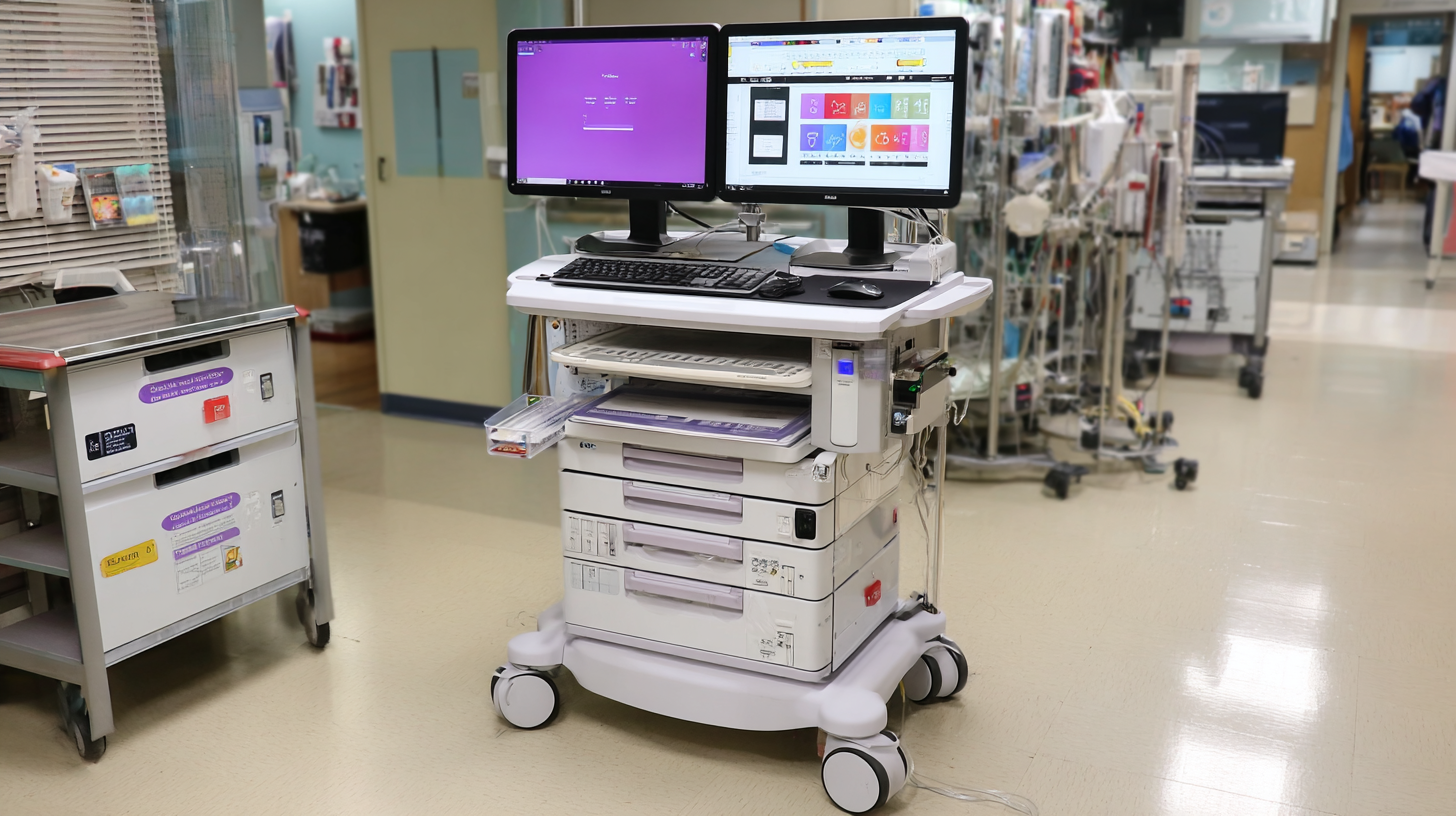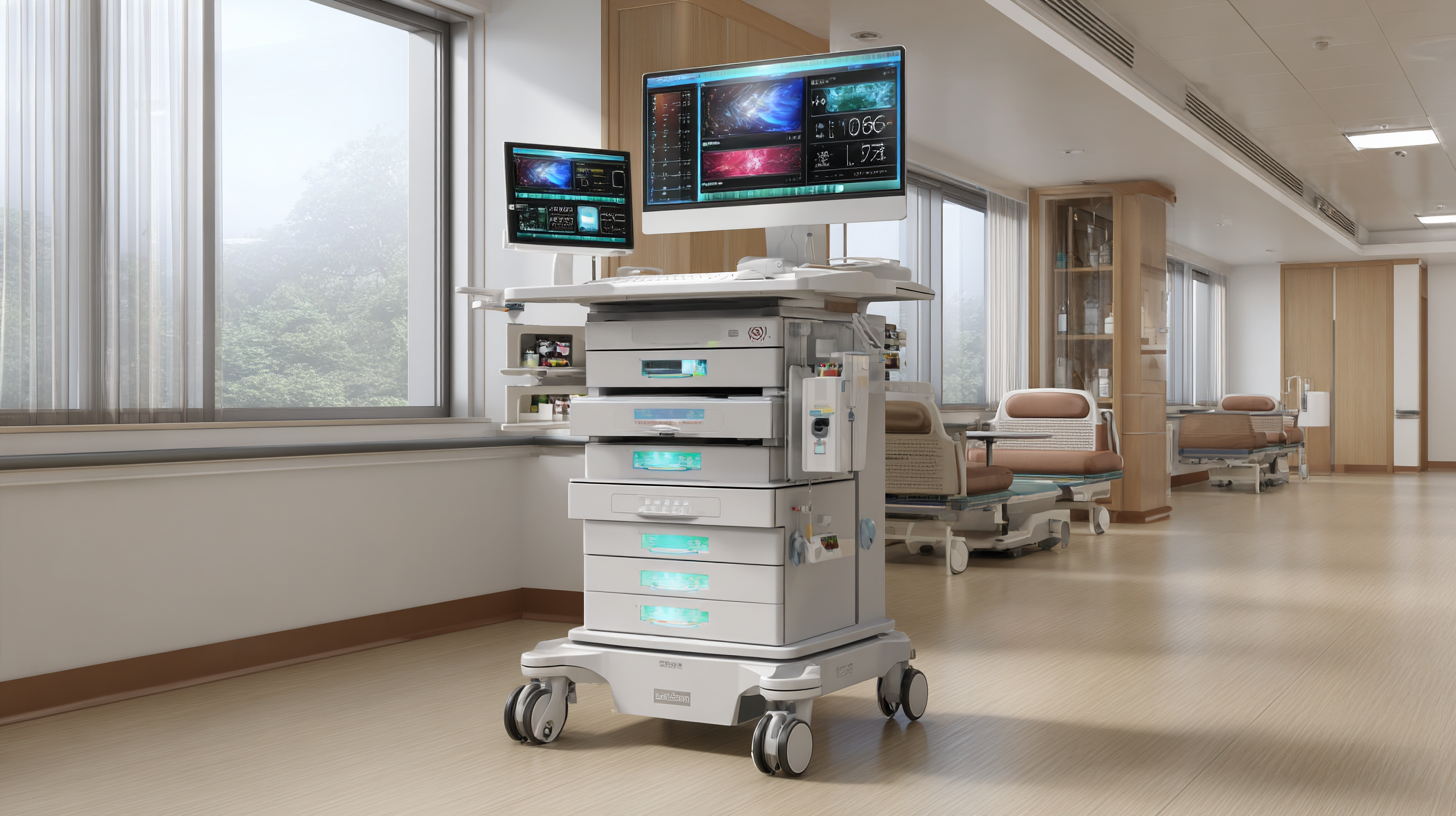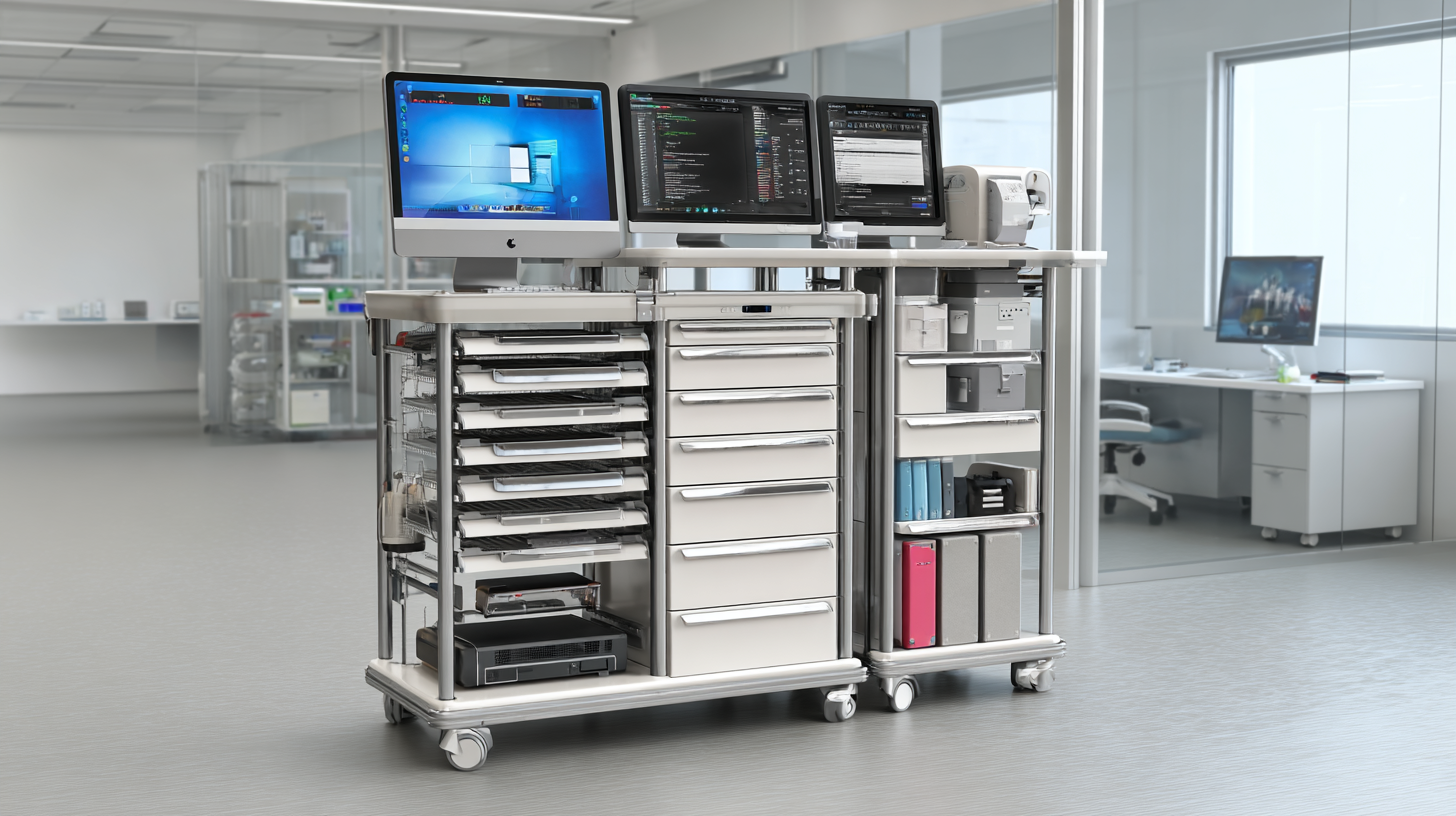Innovative Solutions for the Future of Medical Computer Carts in Healthcare Environments
As the healthcare industry continues to evolve, the importance of efficient and effective medical computer carts has never been more pronounced. According to a recent report by Market Research Future, the global market for medical computer carts is projected to reach approximately $1.5 billion by 2025, growing at a CAGR of around 16% during the forecast period. This surge is driven by the increasing adoption of electronic health records (EHR) and the need for healthcare providers to enhance patient care while streamlining workflows. Innovative solutions for medical computer carts, including ergonomic designs and mobile technology integration, are essential in meeting these demands. As healthcare environments become more technology-driven, understanding these trends and the accompanying innovations will be vital in shaping the future of medical computer carts in providing better healthcare services.

Emerging Technologies Transforming Medical Computer Carts for Enhanced Patient Care
The advancement of technology has ushered in a new era for medical computer carts, significantly transforming how healthcare providers deliver patient care. Emerging technologies such as artificial intelligence (AI) and the Internet of Things (IoT) are being integrated into these mobile workstations, enhancing their functionality and improving overall patient outcomes. By incorporating AI-driven data analytics, medical computer carts can provide real-time insights into patient health metrics, allowing clinicians to make informed decisions promptly. This proactive approach not only streamlines workflows but also elevates the standard of care provided to patients.
Moreover, the integration of IoT capabilities in medical carts facilitates seamless connectivity between devices, creating a more cohesive healthcare environment. These smart carts can interact with other hospital systems, such as electronic health records and telemedicine platforms, ensuring that medical professionals have immediate access to critical patient information. As a result, the potential for improved collaboration among care teams increases, ultimately leading to more accurate diagnoses and timely treatments. In this rapidly evolving landscape, innovative medical computer carts are poised to play a pivotal role in redefining patient care, making healthcare more efficient and responsive than ever before.
Integration of Telehealth Solutions into Medical Computer Carts for Remote Consultations
The integration of telehealth solutions into medical computer carts is transforming how healthcare providers deliver care, especially in remote consultations. As reported by the American Telemedicine Association, the use of telehealth services surged by over 154% during the COVID-19 pandemic, demonstrating the essential role of technology in modern healthcare settings. Medical computer carts equipped with telehealth capabilities can enhance patient access to specialist consultations, reducing the need for in-person visits and thereby lowering the risk of infection transmission in clinical environments.
Furthermore, a recent study published in the Journal of Medical Internet Research indicates that approximately 76% of patients expressed satisfaction with virtual visits facilitated by advanced telehealth technologies. By incorporating high-quality video conferencing tools and secure patient data management systems into computer carts, healthcare facilities can ensure that remote consultations are both effective and user-friendly. As hospitals continue to face challenges such as staff shortages and increasing patient loads, these innovative medical computer carts will play a critical role in enhancing healthcare delivery and patient outcomes in the coming years.

Ergonomic Designs and Their Impact on Healthcare Professionals’ Efficiency
In the fast-paced healthcare environment, the design of medical computer carts plays a crucial role in enhancing the efficiency of healthcare professionals. An ergonomic design not only promotes better posture but also reduces the physical strain experienced by nurses and physicians during their extensive shifts. According to a recent survey published by the Journal of Nursing Administration, healthcare professionals who use ergonomically designed carts reported a 30% decrease in musculoskeletal injuries, significantly improving their overall job satisfaction and performance.
**Tip: When choosing medical carts, consider models that allow for adjustable height and easy maneuverability.** This can encourage healthcare workers to maintain an optimal posture, reducing fatigue and boosting productivity. Additionally, features such as built-in task lighting and ample storage can streamline workflows and minimize time spent finding necessary tools and documents.
Furthermore, a study conducted by the American Association of Colleges of Nursing found that efficient workflows facilitated by ergonomic medical carts can lead to a 20% increase in patient interaction time. Investing in innovative solutions that consider the needs of healthcare professionals ultimately translates to improved patient care and outcomes.
**Tip: Regularly evaluate and gather feedback from healthcare staff regarding the usability of equipment, ensuring that designs continue to meet their evolving needs.** By aligning cart functionality with real-world demands, healthcare facilities can foster an environment where efficiency and care quality thrive.
Smart Features in Medical Computer Carts: AI and IoT for Improved Workflow
The integration of smart features into medical computer carts is revolutionizing healthcare environments. With advancements in artificial intelligence (AI) and the Internet of Things (IoT), these carts are not just mobile workstations but intelligent tools designed to enhance clinical workflows. For instance, AI-driven software allows for predictive analytics, helping medical staff anticipate patient needs and prioritize tasks effectively. This capability reduces response times and streamlines patient care, ultimately leading to improved outcomes.

Moreover, IoT connectivity enables seamless communication between medical carts and other devices within a healthcare facility. When integrated with electronic health records (EHR), these smart carts can automatically retrieve patient data, facilitating real-time updates and minimizing the risk of errors. Features such as secure login through biometrics further enhance data security while allowing healthcare professionals quick access to essential information. This synergy not only boosts efficiency but also empowers clinicians to focus more on patient interaction rather than administrative tasks, fortifying the overall healthcare delivery system.
Sustainability Practices in the Manufacturing of Medical Computer Carts for a Greener Future
The healthcare industry is increasingly recognizing the importance of sustainability, particularly in the manufacturing of medical computer carts. As hospitals and clinics strive to reduce their carbon footprints, manufacturers are innovating their processes to create eco-friendly solutions. Utilizing materials that are recyclable and sustainably sourced is just the beginning. By prioritizing environmentally responsible production methods, companies can significantly decrease waste and lower emissions, contributing to a greener future for healthcare.
Moreover, advancements in technology play a pivotal role in this evolution. Intelligent design elements can be integrated into medical carts that enhance their functionality while minimizing resource consumption. For instance, energy-efficient components can be incorporated to power onboard systems, reducing the reliance on traditional power sources. Furthermore, modular designs not only improve adaptability to various medical environments but also extend the lifecycle of the carts, ensuring that they remain useful for longer, thus decreasing the need for replacements. Emphasizing sustainability in the production of medical computer carts not only benefits the environment but also promotes a culture of responsibility within healthcare settings.
Innovative Solutions for the Future of Medical Computer Carts
This chart illustrates the sustainability practices in the manufacturing of medical computer carts, focusing on the percentage of different materials used in their production. The goal is to analyze the shift towards more sustainable materials in healthcare environments.
